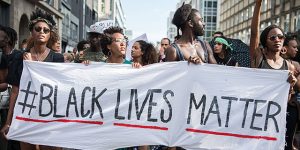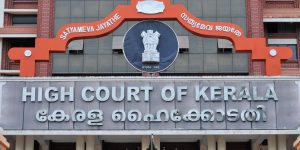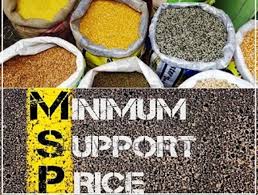Table of Contents
Daily Current Affairs for Government Exams:
Today Current Affairs:1st June 2020 for UPSC IAS exams, State PSC exams, SSC CGL, State SSC, RRB, Railways, Banking Exam & IBPS, etc
Contents:
- Universal Basic Income
- The official language in High Courts
- Violation of Armistice Agreement: UNC:
- SpaceX Crew Dragon
- G7 artificial intelligence group,:
- Kerala government issues guidelines on COVID-19 data collection, processing.:
- Minimum Support Price (MSP):
- Other important current affairs
1.Universal Basic Income:

To deal with the economic inequality, unemployment, and poverty created by the Covid-19 pandemic, many advocate Universal Basic Income (UBI) program be a solution.
- In order to deal with the Covid-19 pandemic, governments across the world have imposed measures like lockdown and social distancing.
- However, these measures have caused collateral damage to almost every sector of the economy, so much so that the International Monetary Fund held the current economic crisis could be the worst ever since the Great depression 1929.
- With almost 90% of India’s workforce in the informal sector without minimum wages or social security, micro-level circumstances in India are worse than anywhere else.
- Even before the pandemic, India was struggling to provide job opportunities for millions of job aspirants who were entering the job market.
- Regular payments through Universal Basic Income (UBI) can ensure the sustenance of the workers engaged in the informal sector, at least till the economy normalizes.
- Countries across the world, which include Kenya, Brazil, Finland, and Switzerland, have bought into this concept.
- Supporters of the UBI program include Economics Nobel Laureates Peter Diamond and Christopher Pissarides, and tech leaders Mark Zuckerberg and Elon Musk.
- The Economic Survey of India 2016-17 has advocated the concept of Universal Basic Income (UBI) as an alternative to the various social welfare schemes in an effort to reduce poverty.
- The idea behind the Universal Basic Income is that every person should have a right to a basic income to cover his needs, just by virtue of being a citizen.
- The purpose of the UBI is to prevent or reduce poverty and increase equality among citizens.
- UBI has five components:
- Universality- It is universal in nature.
- Periodic- Payments at periodic regular intervals (not one-off grants)
- Payments to individuals
- Payments in cash (not food vouchers or service coupons).
- Unconditionality- There are no preconditions attached to the cash transferred to the beneficiary.
2.The official language in High Courts:
Lawyers have challenged in the Supreme Court a law that makes Hindi the official language in courts in Haryana.
- The petition contends that the Haryana Official Language (Amendment) Act of 2020 has unconstitutionally and arbitrarily imposed Hindi as the sole official language to be used in lower courts across the State.
- The lawyers have argued that English is widely used by advocates and the subordinate judiciary in lower courts in justice administration work.
- The imposition of Hindi as the sole language would result in an unreasonable classification between lawyers who are fluent in Hindi and those who are not.
- They say the amendment was a violation of the fundamental right to equality, freedom to practice a profession of choice, dignity, and livelihood.
- Article 348 (1) of the Constitution of India provides that all proceedings in the Supreme Court and in every High court shall be in the English Language until Parliament by law otherwise provides.
- Under Article 348 (2), the Governor of the State may, with the previous consent of the President, authorize the use of the Hindi language or any other language used for any official purpose of the State, in the proceedings of the High Court having its principal seat in that State provided that decrees, judgments or orders passed by such High Courts shall be in English.
- Section 7 of the Official Languages Act, 1963, provides that the use of Hindi or official language of a State in addition to the English language may be authorized, with the consent of the President of India, by the Governor of the State for purpose of judgments, etc. made by the High Court for that State.
- The provision of optional use of Hindi in proceedings has already been made in the High Courts of Rajasthan, Uttar Pradesh, Madhya Pradesh, and Bihar.
3.Violation of Armistice Agreement: UNC:

Recently, the United Nations Command (UNC) has found both North and South Korea guilty of violating the Korean Armistice Agreement 1953 due to gunfire along the Korean Demilitarized Zone (DMZ) between the two countries.
- The USA led UNC is a unified command for the multinational military forces.
- It oversees affairs in the heavily fortified DMZ and ensures the terms of the armistice are being agreed upon by both North Korea and South Korea.
- It was established on 24th July 1950 in Tokyo, Japan.
- The UNC led a multinational special investigation regarding the recent shootings at DMZ whose findings have not been accepted by South Korea owing to non-cooperation by North Korea in the investigations.
Investigations had been unable to determine whether the shootings that originated from North Korea had been intentional. - The shooting also violates the Pyongyang Joint Declaration of September 2018, an inter-Korean military agreement, which calls for reduced military tensions between the two countries.
Korean Armistice Agreement 1953
- The armistice agreement halted the Korean War of 1950-53 and established the Korean Demilitarized Zone (DMZ), the current border between the two nations.
- India has played a major role in the cease-fire agreement, strengthening India-South Korea relations.
- The DMZ runs close to the 38th parallel line.
- The armistice was signed on 27th July 1953 and was designed to ensure a complete cessation of hostilities and of all acts of armed force in Korea until a final peaceful settlement is achieved.
- It was signed by representatives of the UNC, Korean People’s Army (KPA) and the Chinese People’s Volunteer Army (PVA).
- South Korea did not sign the armistice as it refused to accept it.
- It was only a ceasefire and there was no official declaration of the end of the war so in the absence of an official peace treaty, as is the norm, the two countries officially remain at war.
- However, in December 1991, North and South Korea signed a pact agreeing to refrain from aggression.
4.SpaceX Crew Dragon:

Recently, a spacecraft, Crew Dragon, built by SpaceX has successfully carried astronauts of National Aeronautics and Space Administration (NASA) at the International Space Station.
- SpaceX became the first private company to launch people (human spaceflight) into orbit, a feat achieved by the US, Russia & China.
Crew Dragon:
- It is a part of the Dragon 2, a class of reusable spacecraft developed and manufactured by American aerospace manufacturer SpaceX.
- It is the fifth class of US spacecraft to take human beings into orbit, after the Mercury, Gemini, Apollo, and Space Shuttle programs.
- The rocket, named Falcon 9, which carried the spaceship into the orbit, was also built by SpaceX.
- It is done under the Demo-2 Mission of NASA and SpaceX.
The landing by SpaceX flight is a culmination of more than decade-long efforts to enable private players to build and operate what essentially is a commercial taxi-service to space, and allow NASA to concentrate on deep space exploration, and work more vigorously towards taking humans to the moon, and Mars.
The United States now plans to return to the Moon in 2024 under the Artemis mission, establishing a launching pad to Mars by 2030.
India and Private Space Companies:
- While there are many private companies operating in the space sector in the United States, their contribution is not significant in India.
- Most of them collaborate with the Indian Space Research Organisation (ISRO), in building and fabricating the components that go into making rockets and satellites.
- However, launch services, including the building of rockets or launch vehicles are still a monopoly of the government space agency, i.e. ISRO.
5. Black Lives Matter (BLM) movement.:

George Floyd’s death has sparked violent protests in the US bringing focus on the Black Lives Matter (BLM) movement.
- George Floyd, a 46-year-old African American man, died in Minneapolis recently while he was being restrained by the police.
- Video footage of the incident showed an officer kneeling on Floyd’s neck as he gasped for breath.
- Floyd’s repeated cry for help, “I can’t breathe”, has now become a rallying cry among protesters.
- The death has triggered violent unrest in Minneapolis and other parts of the US.
- The incident once again brought to the fore concerns over the law enforcement’s bias against the African American minority.
Black Lives Matter (BLM) movement:
- Black Lives Matter (BLM) is an international activist movement, originating in the African-American community, that campaigns against violence and systemic racism towards black people.
- It campaigns against police killings of black people, and broader issues such as racial profiling, police brutality, and racial inequality in the United States criminal justice system.
- In 2013, the movement began with the use of the hashtag #BlackLivesMatter on social media.
- BLM is largely decentralized and does not have a formal hierarchy.
6.G7 artificial intelligence group,:

The US has joined the G7 artificial intelligence group, an international panel for setting ethical guidelines for the use of artificial intelligence. The Trump administration had earlier dismissed the idea.
- This Global Partnership on AI set up by the Group of Seven will guide the responsible adoption of AI-based on shared principles of “human rights, inclusion, diversity, innovation, and economic growth.
- According to the US, it is important to establish shared democratic principles as a counter to China’s record of “twisting technology” in ways that threaten civil liberties. US involvement is important because of the large role that American tech firms play globally.
- The Group of Seven (G7) is an international intergovernmental economic organization consisting of the seven large IMF- advanced economies in the world: Canada, France, Germany, Italy, Japan, the United Kingdom, and the United States.
7. Kerala government issues guidelines on COVID-19 data collection, processing.:

Kerala government issues guidelines on COVID-19 data collection, processing. This is in the wake of the Sprinklr controversy.
- Recently, Kerala High Court had expressed its concern over the confidentiality of information gathered from COVID-19 patients.
- The Court asked the state government to anonymize all data collected from citizens before allowing access to US company Sprinklr Inc.
- The Court had also asked the state government to explore the Central Government’s submission that it’s the Ministry of Information and Technology that is capable of providing a service similar to Sprinklr which later saw them informing that it will be done through State Data Centre (SDC).
- The government had engaged the U.S.-based data analytics firm in collecting data.
- It ran into a controversy.
- The government had said it had contracted Sprinklr as an emergency measure to crunch the health data of citizens to understand how the pandemic would behave in Kerala.
- However, the Opposition had dragged the government to the High Court, accusing it of having used the outbreak as a cover to allow the U.S.-based firm to “harvest and monetize” the medical information of the State’s population.
Key guidelines:
- If any sensitive personal data is breached, explicit consent should be obtained from the data principal.
- Officials should ensure that all the data collected and collated from Kerala on COVID-19 containment activities should be anonymized so that the unique identification of the data principal is not possible.
- Every citizen who has provided data will be informed that it is likely to be accessed by third-party service providers.
- Specific consent has to be obtained in the requisite format.
- The privacy policy illustrating the compliance in Malayalam and English forms will be included. The privacy policy will also be explicitly specifying the purpose for which data is collected and the data should be used only for the purpose for which it has been collected.
- The data collected will be stored in encrypted form.
- If data is stored in Cloud, the Cloud service provider will be approved by the Central Government and the guidelines issued for the procurement of cloud by government departments should be strictly followed.
8.Minimum Support Price (MSP):

Ministry of Tribal Affairs has announced the inclusion of 23 additional Minor Forest Produce (MFP) items in the Minimum Support Price (MSP) list.
- They include Van Tulsi seeds, Van Jeera, Mushroom, Black Rice, and Johar Rice among others.
- This enhances the coverage from 50 to 73 items.
- This comes in view of the COVID-19 pandemic so that much-needed support could be provided to the tribal MFP gatherers.
- The Union Cabinet, in 2013, approved a Centrally Sponsored Scheme for the marketing of non-nationalized / non monopolized Minor Forest Produce (MFP) and development of a value chain for MFP through Minimum Support Price (MSP).
- This was a measure towards social safety for MFP gatherers, who are primarily members of the Scheduled Tribes (STs) most of them in Left Wing Extremism (LWE) areas.
- The responsibility of purchasing MFP on MSP will be with State designated agencies.
- To ascertain market price, services of market correspondents would be availed by the designated agencies particularly for major markets trading in MFP.
- The scheme supports primary value addition as well as provides for supply chain infrastructure like cold storage, warehouses, etc.
- The Ministry of Tribal Affairs will be the nodal Ministry for implementation and monitoring of the scheme. The Minimum Support Price would be determined by the Ministry with the technical help of TRIFED.
Other important current affairs:
1. Prime Minister of India announced the “My Life – My Yoga”(also called “Jeevan Yoga”) Video Blogging Contest.
- The contest is a joint effort by the Ministry of AYUSH and the Indian Council for Cultural Relations (ICCR) to inspire people to become active participants in the observation of the sixth International Day of Yoga (IDY) coming up on 21st June 2020.
- This contest is open to all participants across the world. The contest has gone live on the social media handles of the Ministry of AYUSH today, 31 May 2020.
- To enter into the contest the participants are required to upload a 3 minutes duration video of 3 Yogic practices (kriya, asana, pranayama, bandha or mudra), including a description on how the said Yogic practices influenced their life.
- For the India contestants, prizes worth Rs. 1 lakh, 50K and 25K for 1st, 2nd and 3rd ranking within 6 categories have been announced. Details of the global prizes will be announced shortly on the Yoga Portal of Ministry of AYUSH.
2. Researchers at the Central Marine Fisheries Research Institute (CMFRI) have found a rare fish from the Sethukarai coast in the Gulf of Mannar. The specimen has been deposited in the National Marine Biodiversity Museum of the CMFRI.
- The band-tail scorpionfish (Scorpaenospsis neglecta) is called ‘scorpionfish’ because its spines contain neurotoxic venom. When the spines pierce an individual, the venom gets injected immediately and it can be extremely painful. Eating the fish would lead to death.
- The fish is well-known for its ability to change color and blend with its surrounding environment to escape from predators and while preying.
- This was the first time that the particular species was found alive in Indian waters.
3. China has been objecting to the presence of the US THAAD missile defense system in South Korea.
- THAAD is an acronym for Terminal High Altitude Area Defense, a transportable, ground-based missile defense system.
- THAAD is coupled with space-based and ground-based surveillance stations, which transfer data about the incoming missile and informs the THAAD interceptor missile of the threat type classification. THAAD is alarmed about incoming missiles by space-based satellites with infrared sensors.
- This anti-ballistic missile defense system has been designed and manufactured by the US company Lockheed Martin.
- It has been deployed in South Korea, UAE, Guam, Israel, and Romania.
- In South Korea, the THAAD missile defense system is operated by the US army stationed in its army base in Osan, South Korea.
4. Stating that PM CARES FUNDS is not a ‘public authority’ under Section 2(h) of the Right to Information Act, 2005, the Prime Minister’s Office(PMO) has refused to divulge information sought in an application filed under the RTI Act.
- As per Section 2(h) of the RTI Act, “public authority” is means any authority or body or institution of self-government established or constituted:
- by or under the Constitution;
- by any other law made by Parliament;
- by any other law made by State Legislature;
- by notification issued or order made by the appropriate Government.
- The definition of ‘public authority’ also includes bodies owned, controlled, or substantially financed by the government and non-governmental organizations substantially financed, directly or indirectly by funds provided by the appropriate Government.
5. The Reserve Bank of India (RBI) announced that the Government of India has discontinued 7.75% savings (taxable) bonds, 2018 for a subscription.
- The 7.75% Savings (Taxable) Bonds, 2018, also known as RBI bonds or government bonds, were issued with effect from January 10, 2018, and were available for subscription to resident citizens/HUF to invest in a taxable bond.
- While one bond was of Rs 1,000 each, the bonds had no maximum limit for investment.
- The bonds had a 7-year lock-in period from the date of issue, but, it permitted premature encasement to individuals who were 60 years and above.
- Interest on these bonds will be taxable under the Income-tax Act, 1961.
7. As India struggles to contain the Covid-19 pandemic, it faces a new challenge. Several parts of the country have experienced heavy infestations of locusts – an insect that devours crops and foliage, often leaving devastation in its wake.
- It is said to be the worst attack in 26 years. The species attacking are desert locusts.
- Desert locusts (Schistocerca gregaria), which belong to the family of grasshoppers, normally live and breed in semi-arid or desert regions. For laying eggs, they require bare ground, which is rarely found in areas with dense vegetation.
8. United States President Donald Trump has announced that America is terminating its relationship with the World Health Organization (WHO) over its handling of the Coronavirus.
- He blamed WHO and China for the deaths and destruction caused by the COVID-19 pandemic across the globe.
- The US President said, because they have failed to make the requested and greatly needed reforms, the United States will be terminating its relationship with WHO forthwith and redirecting those funds to other worldwide and deserving, urgent global public health needs.
- Trump initially suspended funding to the WHO last month.
- Now, he made that decision permanent in a major blow for the agency’s finances, as the U.S. is by far its biggest contributor, pumping in $400 million last year.
9. Rule 266 and 267 of the Lok Sabha:
- Rajya Sabha secretariat has denied permission for members of the standing committee on Home Affairs to join a meeting of the panel through videoconference.
- The reason videoconference meetings were not being allowed was that it violated the principle of confidentiality, as there was no guarantee of a member sitting alone at such events.
- Rule 267 states that committee meetings have to be held in the Parliament building. However, the Speaker has the power to change the venue.
- Rule 266 mandates that all committee meetings have to be held in private.
10. Nepal’s Constitution Second Amendment Bill:
- The government of Nepal has tabled the crucial Constitution Amendment Bill to formalize the country’s new map, which claims parts of India as its territory.
- The Bill will change the Schedule 3 of the Nepalese Constitution and replace the existing map with the map that was unveiled on May 20.
- The new map depicts the sliver of strategically important land covering Limpiyadhura, Lipulekh, and Kalapani as part of Nepal.




